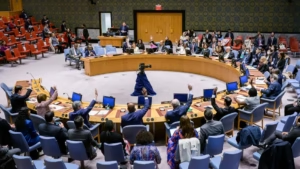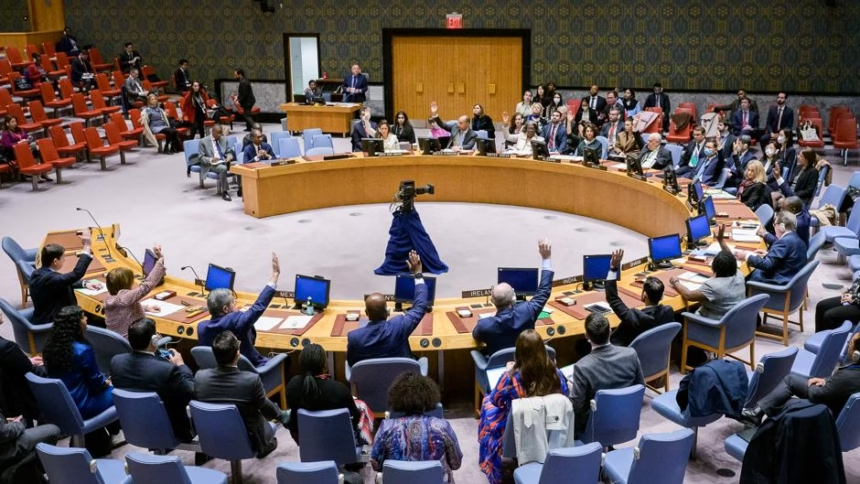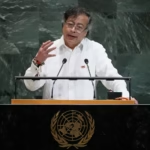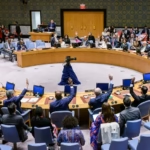A new UN-backed security force is coming to Haiti. The Security Council has adopted Resolution 2793, authorising for 12 months the transition of the Multinational Security Support (MSS) mission into a Gang Suppression Force (GSF) and establishing a UN Support Office in Haiti (UNSOH). The following paragraphs explain key authorisations, force structure, and operational details.
Vote: 12 in favour, 0 against, and 3 abstentions (China, Russia, Pakistan).
The resolution tasks the GSF with intelligence-led operations against gangs, securing critical infrastructure, supporting Haitian institutions for elections and humanitarian activities, enabling safe exits for gang members, and combating arms trafficking. These efforts aim to create safer environments, such as securing school routes to ensure children can attend classes without fear of gang interference and reopening clinics to provide essential medical services to communities, according to the resolution adopted by the UN security council.
All measures must comply with international law and prioritize the protection of vulnerable groups, ensuring these benefits reach those who need them most.
Turning to force size and leadership, the personnel ceiling is 5,550 (5,500 military and police personnel plus 50 civilian personnel).
The Council takes note of a standing group of partners composed of the Bahamas, Canada, El Salvador, Guatemala, Jamaica, Kenya, and the United States.
This group is tasked with selecting the GSF Force Commander and a Special Representative for the GSF, which is a non-UN role designed for strategic representation and coordination.
The Force Commander will oversee all military operations and report directly to the Special Representative, who is responsible for liaising with the partner group to align strategic objectives.
This structure ensures clarity in decision-making and enhances transparency within the leadership model.
Regarding safeguards and compliance, the text underscores strict compliance with international law, including human rights law, and calls for a robust compliance mechanism to prevent, investigate, address, and publicly report abuses (including sexual exploitation, abuse, and harassment).
It requests the deployment of Child and Women’s Protection Advisers and a survivor- and victim-centered response. Operations must fully integrate child protection and the protection of other vulnerable groups.
To ensure transparency and accountability, there will be independent oversight by an appointed international body to audit compliance measures and report findings. Additionally, a confidential reporting channel for rights violations will be established, providing assurance that grievances are thoroughly reviewed and addressed, according to the resolution.
In terms of support for operations, UNSOH will provide logistical and operational support, including rations, fuel, water, accommodation, and infrastructure (the primary GSF base and any forward bases), as well as medical and mobility support, strategic communications, IT, and GIS.
Additionally, UNSOH will provide reimbursement for contingent-owned equipment, including lethal equipment.
All UNSOH assistance must comply with the UN Human Rights Due Diligence Policy (HRDDP). For the HNP and Haitian armed forces, support is limited to in-theatre medical evacuations on joint operations aligned with the GSF’s strategic concept, stated the resolution.
On coordination and reporting, the GSF is responsible for regularly coordinating activities, plans, and results with BINUH and the UN Country Team to ensure complementarity and synergy.
The Secretary-General will report to the Council through his regular Haiti updates; within nine months, the GSF Special Representative must present a strategy with metrics and time-bound objectives, including benchmarks toward an end-state. The Council reaffirms respect for Haiti’s sovereignty and political independence.








